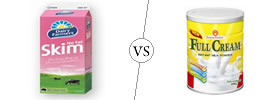Difference between Mutual Fund and ETF
Key Difference: Mutual funds are basically schemes where money from multiple investors is collected and invested in securities, which could be debt as well as equity. An ETF is more similar to stock trading, but relies on tracking indexes.
 In many ways mutual funds and ETFs or (Exchange Traded Funds) are similar in nature, resulting in a lot of confusion among the two. The confusion stems from the way these investments work.
In many ways mutual funds and ETFs or (Exchange Traded Funds) are similar in nature, resulting in a lot of confusion among the two. The confusion stems from the way these investments work.
Mutual funds are basically schemes where money from multiple investors is collected and invested in securities, which could be debt as well as equity. These funds are run by broking companies, which take small amounts of money from multiple investors to make a large sum that is invested in multiple securities. The mutual fund has made it easier for the layman to gain the benefits of the investing in the securities market. The investor just has to hire a broker from the many companies present, after which they pay the broker the amount they wish to invest, who will then issue an account under the investor’s name and issue shares or stocks for the investor. They also manage the account and raise money for the investors. The broker handles multiple accounts and creates multiple portfolios; he will collect the money from the multiple investors and place them in various different securities. So, one investor’s money will not invested in the shares of one company, rather in 10 or more companies. This reduces the risk of losing the bulk amount of investment, in the case of a loss.
 An exchange-traded fund is similar to mutual fund in only one way, that broker-dealers or brokers consolidate large amount of funds and invest them; however, where they invest them is completely different. An ETF is more similar to stock trading, but relies on tracking indexes. This pooled investment is invested in a particular segment on part of the market, for example gold, crude oil, Dow Jones, etc. ETFs are passively managed, which means they do not require a trader to constantly monitor or continuously buy and sell shares. ETFs are also long term investments, which result in providing higher returns. ETFs have recently come into popularity because of low costs, tax efficiency, and stock-like features. Another way they are different to mutual funds is, where mutual funds can only be traded at the end of the day, ETFs can be traded at any time of the trading day, similar to stocks and shares.
An exchange-traded fund is similar to mutual fund in only one way, that broker-dealers or brokers consolidate large amount of funds and invest them; however, where they invest them is completely different. An ETF is more similar to stock trading, but relies on tracking indexes. This pooled investment is invested in a particular segment on part of the market, for example gold, crude oil, Dow Jones, etc. ETFs are passively managed, which means they do not require a trader to constantly monitor or continuously buy and sell shares. ETFs are also long term investments, which result in providing higher returns. ETFs have recently come into popularity because of low costs, tax efficiency, and stock-like features. Another way they are different to mutual funds is, where mutual funds can only be traded at the end of the day, ETFs can be traded at any time of the trading day, similar to stocks and shares.
Comparison between Mutual Fund and ETF:
|
|
Mutual Fund |
ETF |
|
Description |
Mutual funds are basically schemes where money from multiple investors is collected and invested in securities |
An ETF is more similar to stock trading, but relies on tracking indexes |
|
Trading |
New orders must be placed before the end of trading day in order to avail the NAV of that particular day |
Orders can be placed at any time throughout the trading day |
|
Share Price |
Share price will the NAV determined at the end of the day |
Prices fluctuate throughout the day |
|
Trading costs |
Often requires no trading costs; however, depends on the company |
Most brokerages charge for trading |
|
Charges |
Can be offered with or without sales charges |
No additional sales charges or "loads"(but commissions still apply). |
|
Buying and Selling |
The mutual funds issue new shares for each new investor that buys from the fund. Can be done through a broker or directly from the fund company |
Buying and Selling happens on exchanges and requires broker |
|
Management |
Can be actively or passively (tied to an index) managed |
ETFs are generally indexed, or passively managed (but there are some actively-managed ETFs out there) |
|
Minimum Investment |
Mutual funds set its own minimum initial investment |
The minimum investment is the amount to purchase one share plus trading costs |
|
Returns |
Commonly on a schedule such as monthly, quarterly, etc. |
The ETF must be eligible for a dividend reinvestment program, however, ETF dividends can be reinvested |
|
Taxes |
Some are tax free, while some are not |
Depends on the sector the ETF is invested in |
|
Transparency |
Less transparent |
More transparent |
Image Courtesy: goodreturns.in, bigtrends.com









Add new comment